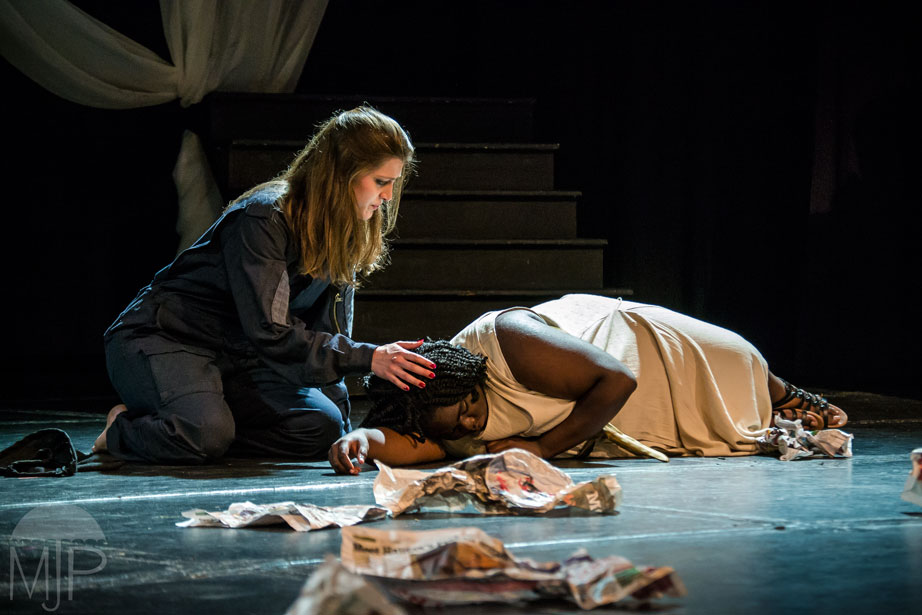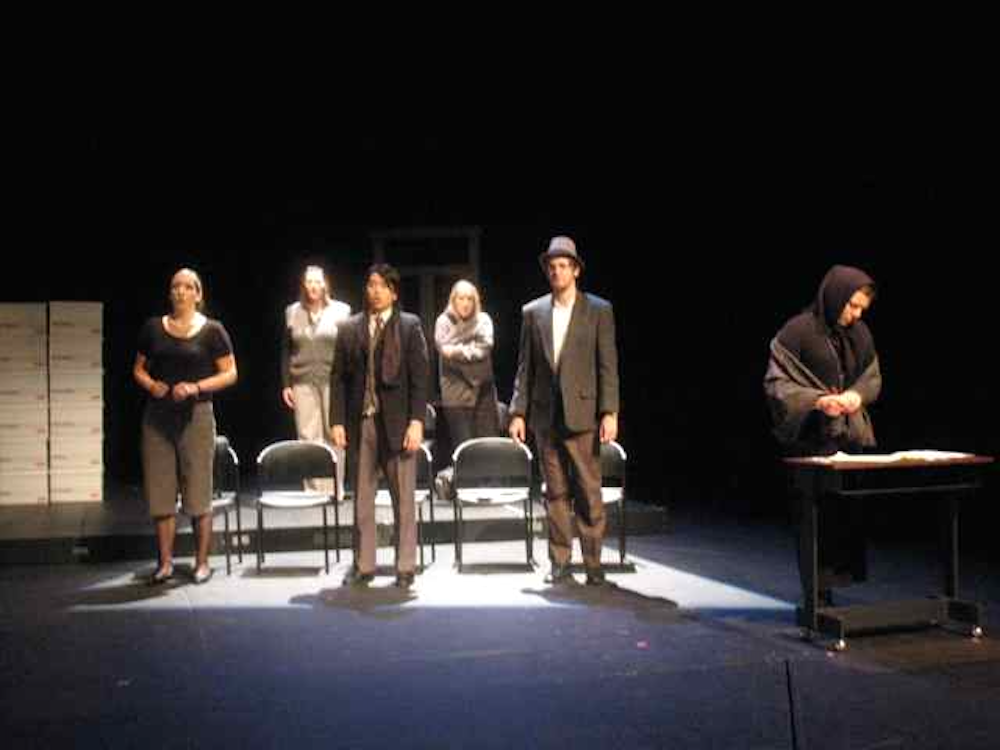La jolie parfumeuse (1873)
music by Jacques Offenbach
French libretto by Hector Crémieux and Ernest Blum
English script by David Mosey
sung in French with English dialogue
music director: Giancarlo Scalia
stage directors: Andrew Pelrine and David Mosey
rehearsal pianist: Cindy Thong
vocal coach: Dr. Susan Boddie
costumes: Ryann Farmer
Alexander Technique: Mary Fay Coady
Performances at Lilian Piercey Concert Hall, Maritime Conservatory of Performing Arts, 6199 Chebucto Road, Halifax:
Saturday August 12, 7:30 pm
Sunday August 13, 2:00 pm
Thursday August 17, 7:30 pm
Saturday August 19, 2:00 pm
| LA JOLIE PARFUMEUSE | Saturday August 12, 7:30 pm Thursday August 17, 7:30 pm | Sunday August 13, 2 pm Saturday August 19, 2pm |
|---|---|---|
| Rose Michon | Ashley Carpenter | Ashley Carpenter |
| Bavolet | Janaki Butterworth | Madeline Berman |
| Clorinde | Charlotte Anderson | Dahlia Gamache |
| La Julienne | Rosalie Dowling | Rosalie Dowling |
| Arthémise | Oliva MacGowan | Oliva MacGowan |
| Madelon | Anna Simmons | Laura Pollard |
| Justine | Abby Corpus | Abby Corpus |
| Lise | Sarah Brown | Charlotte Anderson |
| Germaine | Karina Lago Disdier | Karina Lago Disdier |
| Poirot | Sarah Brown | Sarah Brown |
| La Cocardiere | Marko Hubert | Marko Hubert |
PROGRAM NOTES
La Jolie parfumeuse is an operatic joke, unintentionally created as a statement about the fate of women, love and marriage. From 1850 to 1880 Offenbach created over a hundred operas intended, on the one hand, to give way to his insurmountable creativity, and on the other, to produce the means to support his thirst for the extravagance on the stage and his personal life. Paris of the Second Empire cannot be understood without Offenbach; a society wealthy enough to furnish itself with entertainment needed the type of music that Offenbach was eager to produce. In doing so, he became the most famous man in the Parisian opera for well over 20 years.
Most of his subjects dealt with the daily life of the same Parisians who repleted the varied venues in which he helped shaping the spirit of an era. The little perfume shop owner represents the quest of an independent lower-middle-class women for a life of peaceful marriage with a man from whom she will receive love, respect and recognition of her worth. Such aspiration will collide with men´s hunting vocation, and she needs to turn to her wits and other women´s help, to overcome the frailness of men´s trust.
SYNOPSIS
Act 1
Bavolet, a recent law graduate, and god-son of the rich Major La Cocardière, is marrying Rose, a chemist at the perfume-shop (who bears a striking resemblance to a new member of the ballet recently arrived from Toulouse, Dorothy Bruscambille). The wedding celebrations are in full swing at the Cabaret des Porcherons. when Clorinde (mistress of La Cocardière) arrives with her dancer friends. Clorinde interrogates the Major about his attendance (when he had claimed to be unwell). Poirot (the Best Man) and Cocardière scheme to get hold of the bride’s garter. Bavolet tells Rose that he is keeping the location of their new home a secret until later.
La Cocardière announces Verrouillaski, the ‘famous Polish cartoonist’ (Poirot in disguise). They persuade Rose to pose for a sketch, during which La Cocardière gets hold of the garter. After another dance all prepare to leave. Bavolet asks La Cocardière if he will drive his wife to their new home, and on the way give her the sort of advice for her wedding night that her mother would have given her, were she still alive. With some alacrity, the Major agrees to do this.
Act 2
Germaine, La Cocardière’s housekeeper, sings of the advantages of working for a rich, self-important person as she and the rest of the staff prepare for a luxurious meal in Cocardière’s absence. Cocardière and Rose arrive, interrupting the party. Cocardière assures Rose that this luxurious flat has been all arranged by Bavolet, Rose deftly diverts Cocardière’s initial overtures, so Cocardière calls the maids to prepare Rose for bed. He then returns pretending to be Bavolet, but without success. His efforts are curtailed by
Germaine who announces the arrival of Clorinde and her friends. Rose ducks through the nearest door, while Cocardiere goes downstairs to face Clorinde, Arthemise and Madelon. who have arrived to celebrate his birthday and are expecting supper. As the Major tries to (a) get Rose off the premises and (b) organise supper for the trio of dancers, Bavolet and Poirot arrive demanding what Cocardière has done with Rose. Dissatisfied with Cocardière’s explanations, Bavolet is about to open the door through which Rose fled, when the door opens and Rose emerges in a can-can costume and introduces herself as Dorothy Bruscambille, the latest recruit to the Paris Opera corps de ballet. Bavolet finds it difficult to believe this, but after much talk (and more champagne) he follows her to bed. Cocardière appears looking for Rose. A hand (Clorinde’s hand) appears beckoning him into another room. Poirot enters and bumps into Arthemise. He thinks she is Dorothy Breuscambille. She does not disabuse him of this, but invites him into a third room.
Act 3
The perfume shop. Bavolet is discovered waking up with a fierce hangover. Poirot arrives, and tells Bavolet that he is determined to marry Dorothy Bruscambille and is off to speak to her parents. As he leaves, Rose arrives and Bavolet has a perfectly satisfactory quarrel with her after which he rushes off. Major Cocardière then arrives and Rose keeps him busy running all over the shop. Clorinde arrives and, terror stricken, Cocardière hides in a cupboard while Clorinde, at Rose’s invitation, noisily searches the shop. In the middle of this Julienne runs in and says that she saw Baviolet rushing towards the river, and that a crowd of people were saying he’d thrown himself in. She and Rose rush off to find out.
Rose and the soaked Bavolet become reconciled and Poirot returns to announce that he’s just found out that Dorothy Bruscambile is in fact married and has children. Everyone sympathises with him except Arthemise who explains how lucky he really is, and she’s not going to give him up. At this point Major Cocardière bursts forth from the cupboard. Clorinde shows everyone the large diamond ring on her finger and explains that Major Cocardière placed it there last night. So the operetta closes with three marriages.




